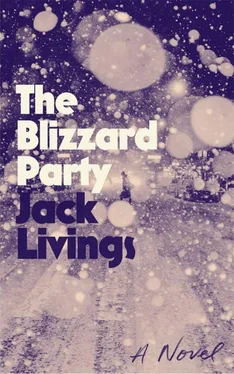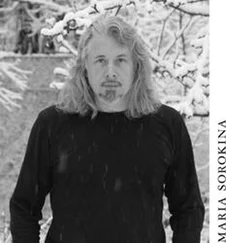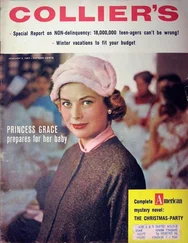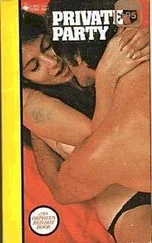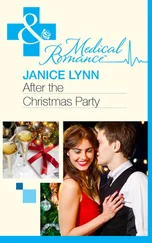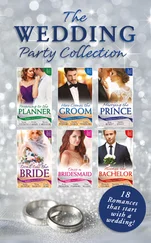Come here, kid, he said, pulling on my ankle. His hand was cold against the band of exposed skin between frilly white sock and blue cotton legging, and entirely encircled my ankle. I kicked as I slid across the parquet toward him.
You’re going to burn your face off.
No, I’m not, I said. My chest was full of folded blankets. I sucked in a hitching breath.
Handkerchief, I heaved. Even at six, I was anything but a savage. Logical as an equation, I wouldn’t sacrifice my dignity on the altar of self-pity, a characteristic my father claimed to admire. He extracted the handkerchief from his pocket and I took it from his hand. The cloth was embroidered on three corners with blue hearts, a gift from my mother, a coded message only three cryptologists in the world could ever have deciphered. Red thread ran from each corner and met at the center. The summer before, we’d stood at the vertex of Colorado, Utah, New Mexico, and Arizona beneath a sky the exact color of indigo she’d chosen for the hearts. We’d taken the train because my father had refused to fly.
I blew an oyster into it.
What happened? My mother had appeared silently behind him, crouching down, laying a hand on my head, the other on his shoulder.
Daddy made me fall down, I said.
Bad Dad, she said, pulling at my limbs. Your bones are still there. I don’t see any blood. No blood, no Band-Aid.
The presence or absence of O negative was the yardstick by which my mother gauged the severity of virtually any accident, physical or emotional. Growing up with three brothers, she’d witnessed her share of gore. When she was a girl, nothing less than the exposed white of bone warranted her extended attention. Another trip to the ER. She’d shrug: Which moron this time? There would follow the ritual wrapping of the injured limb—her mother’s domain—and bundling of injured party into a coat, my mother running through the house to turn off lights, everyone piling into the Studebaker while her father chewed his thumbnail, bored as a cabbie waiting for a cripple to drag himself in, the long drive into town, my mother jockeying for a waiting room seat that afforded a view into the ER, from which she might catch a glimpse of some action, awaiting arrival of the nurse who would take her brother back to the doctor who would flush and sew the wound or set the bone or both.
Her childhood home, the house itself, had borne the brunt of her brothers. It was a furniture mausoleum, decorated with cracked and glued lamps, smashed chairs reassembled hastily by the perpetrator, usually the oldest, whose addiction to mayhem was a shining example to his younger brothers. They were a Hydra of domestic destruction, and she, the youngest, was Athena observing from shore, usually left to her own devices except when a story had to hold together, and required the collusion of all the siblings, at which time she stepped in to weave her spell of conjunction.
She was no pushover, that girl, this woman. She cut waves like an oil tanker, diverted from her course by neither high seas nor marauders. But when I bled, she got very serious very quickly.
No blood, my father confirmed. Tooth went down the chute, though.
Show me, she said, peering into his mouth, venturing a finger.
Let me see, I said, struggling free from his embrace to gain a better sight line into his gaping maw.
Where? I said.
My mother pointed.
You have yellow teeth, Daddy.
Mawshes ah yehwoh behwee, he garbled around my mother’s finger.
Let me see, I said, pulling at his shirt.
It’s just a saying, my mother said. Daddy’s belly is white as a whale’s.
Hanks, he said.
Oh, lemme see lemme see! I said.
He would do anything to make me laugh. He wanted to give me a happy childhood. Moronic phrase, yet one he was unable to banish from his thoughts. It was a fantasy implanted in his head by guests on Carson who insisted that their childhood homes had been filled with laughter, an invention to put the audience at ease: See here, I’ve been content going way back, don’t you worry about me. And the audience exhales, because it’s nerve-racking, being responsible for the happiness of that guy in the spotlight, which, unless he tells you otherwise, depends entirely on your expressions of love for him. That’s your job, to take care of the performer’s feelings, to cradle him and caress him, to feed him your laughter and attention and make him feel okay.
So my father wanted me to have a happy childhood because it relieved him of the overwhelming desire to care for me? Perhaps.
It was true that I elicited from him a pure, aching compassion. He thought it possible that I was, for him, the origin of that very emotion, its first expression simultaneous to my birth, as though it were a rare tropical fruit he’d plucked from the tree and eaten while sitting on the forest floor, a sweeter, more elaborate flavor than he’d ever tasted from all the oranges and apples he’d mowed through in his life. He wanted me to laugh, perhaps, because he had no other gifts to give. He had darkness and introspection, a tendency to recoil from human contact. He had neuroses, cowardice, the nasty hangover of a past he couldn’t shake. No natural feel for parenting, and at his age, little hope of learning. I was a grown woman by the time he got his arms around the task. He relied on simple rules, little orange flags in the misty landscape, but even as he trekked from one to the next he had no sense of up or down, north or south. No instinct for it, he thought, none at all. In art and argument he valued complexity, but when it came to me, his brain overflowed with monolithic, simplistic ideas: Spare the rod, spoil the child. Look before you leap. Haste makes waste. A happy childhood.
According to him, he was a bad parent, a notion bolstered by the prodigious ease with which my mother nurtured me. It was like playing Claudius opposite Olivier’s Hamlet. He stuck to his lines and tried not to screw up the blocking. Simplicity. Consistency. Stay out of the way.
I had been just a newborn when my father had come to the conclusion that his own instincts were not to be trusted. Rocking me in my dark room one night, humming softly, he was overwhelmed by what could only properly be named a flood of emotion—not a single, identifiable feeling, but everything his heart was capable of throwing at him, a raging muddy river clogged with debris. He’d sobbed and held me as though I were his life buoy. Too much, he’d thought. It’s just too much. Unsortable, uncontrollable. And how would he protect me if he was this weakened by love?
Ah yehwoh behwee, he again said around my mother’s finger. I turned my head to hide my smile—I was not done with my accusatory tears. As I did, a spot of red appeared on my white shirt, above the school crest, at the clavicle. My parents both saw it and my mother ran her hand up my neck, her fingertips lightly touching the skin. I giggled and closed off access by clamping head to shoulder.
Honey, my mother said. She and my father were both looking for blood from the ear, of course, having been tempered to search out that cinematic signal of dire brain injury. Everyone bleeds from the ear or nose, a single trickle, before their eyes go glassy and they die. But it wasn’t coming from the ear, and when I relaxed my clench, my mother canvassed my skull, pulling curtains of hair this way and that until she found the source, a split in the scalp, a wet mouth parted among the hairs at the crown of my head, darkly saturated, and a single stream running from the side. The wound was about three inches long. I, looking at the faces of my parents, suddenly realized something was wrong.
Just a cut, honey, she said. We should have a doctor look at this, she said to my father.
I have to go to the doctor? I said, clutching my mother’s arm.
Читать дальше
